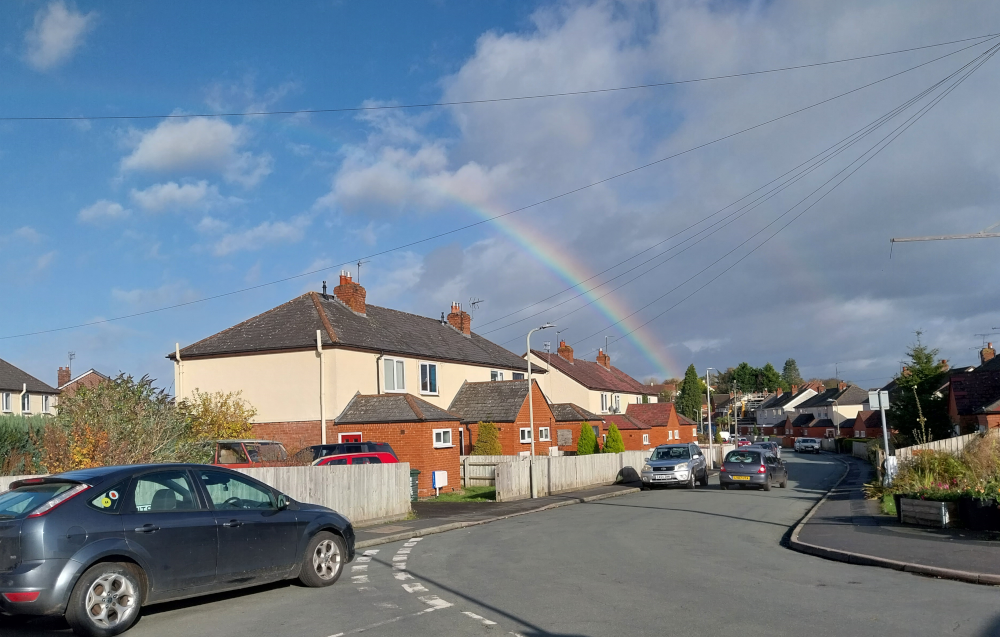As part of the package of £62 million cuts agreed by Shropshire Council, the waiting list for social and council housing is to be closed except for those most in need. I raised concerns about this at council on 29 February and received some information from councillor Dean Carroll, the portfolio holder for housing. The next day I sought clarification. This arrived yesterday evening.
Currently the housing register is open to allcomers, including people with no local connection. The “temporary” changes being brought in will close the register except to those most in need. That will include everyone to which the council owes a statutory duty, for example because they are homeless.
The council is concerned that some social housing is being allocated by housing associations to people who have sufficient resources to live in the private sector or have no local connection.

I have a lot of questions about this which I will ask officers, including when this will start (has it started?), what the criteria will be for giving people access to the list and how long will the restrictions last. It was suggested at council they might last a year but could they become permanent? I will ask for regular updates to councillors.
I also have concerns that these restrictions will trap people in properties with bad landlords and unsuitable properties. Many people dare not complain about living conditions in fear a of Section 21 no fault eviction (the government has yet to deliver its pledge to ban this practice).
The measure is projected to save £100,000 in 2023/24.
Council statement
Laura Fisher, Head of Housing said on Saturday:
“You will be aware that there is a growing need for housing nationally and this means that the number of people to whom the council have a statutory duty is also increasing.
“Currently in Shropshire we operate an open housing register which means we allow people who have the financial means to apply as well as those who have no local connection. We need to make sure people the council have a duty to are prioritised before those who do not.
“Further to this, the number of people the Council has a duty to accommodate is growing and currently this means the number of people in temporary accommodation is increasing. This is bad for clients as B&B accommodation is not suitable for their needs and is also costly to the Council. We have a number of temporary accommodation schemes in the pipeline, some of which will show fruition in the next 12 months. Our aim is to not use B&B at all. However, to do this we must ensure that those to whom we have a statutory duty can access the scarce available accommodation.
“By closing the register for a short period of time it will enable us to really focus on those the Council has a duty to house. It will enable us to put additional pressure on the social landlords to encourage them to accept those households we have determined to be of the highest priority. We will still allow those to whom we owe a statutory housing duty to join the register and there will be some other groups who can too, e.g., those fleeing domestic abuse but who do not want to make a homeless application, or those who will be care leavers but have not yet reached 18 and so are unable to make a homeless application. But those to whom we do not owe any duty will not be able to join for a period of time. We will not remove anyone from the register who is already on it, so there will still be a significant number of people on the register (over 7000) to whom we do not owe a duty.
“We are working on the criteria of who can apply right now, and we are aware this needs to be wider than simply those to whom a statutory duty is owned, but not so wide that effectively we are unable to have the desired impact on our temporary accommodation figures.”
Social housing or council housing?
Confusion between social housing and council housing is commonplace. Decades ago, all public housing was council housing. There is now no council housing in Ludlow.
In the last few decades, many council houses have been either transferred to housing associations or to council arms-length management organisations (ALMOs). In the former district of South Shropshire, all public housing is social housing, owned by housing associations such as Connexus, Marches, Wrekin and Bromford. In Bridgnorth and Oswestry and some other areas, council housing still exists, owned by Shropshire Council and managed by its ALMO, Star Housing. In some areas of the country, council houses are directly owned and managed by a council.
Housing associations are also known as Registered Social Landlords or Private Registered Providers of Social Housing.


As long as Tories are in power the situation will not improve. THERE IS NO SUBSTITUTE FOR MORE HOUSES TO BE BUILT Social rent is 30% council) of market value. Social housing is 80% of market value. These, I will presume, be housing associations etc. What is ‘temporary’? It has a problem that it could end up permanent. To steady the situation and maintain the stock. Is It possible the council can visit ALL properties, includes private landlords, so that maintainance can be monitored limiting the risk of demolitions?
I understand there is Govnt funds to allow Councils to allow hem to buy back sold off council houses .This should be investigated to see whether it will help.